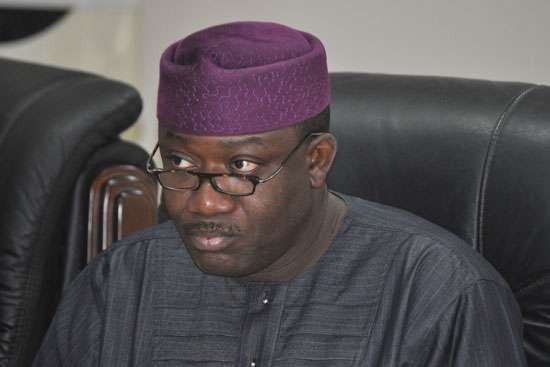
The Federal Government has concluded plans to merge the current functions of the Mining Cadastral Office (MCO) of the Ministry of Mines and Steel Development, the Mines Inspectorate and Mines Environmental Compliance offices into a new “super regulatory agency” to now drive enforcement of existing industry regulations.
“We will now have a super regulatory agency that pulls all of our mines inspectorate directorates, our mining cadastral office, license issuance office, our mines environmental compliance unit into an NCC type independent agency with an arms length relationship with the ministry,” Kayode Fayemi, minister of mines and steel development, told BusinessDay in an exclusive interview.
The plan is to scrap the MCO entirely in a co-ordinated attempt to build the organisational and functional capabilities of the ministry to effectively oversee the current transformation of the Nigerian mining sector.
The Nigerian Mining and Mineral Act (2007) defines the Mining Cadastre Office as an autonomous body responsible for the issuance and management of mining titles and rights on a “first come, first served” basis.
It also oversees the protection of legal rights of domestic and international investors, the security of tenure of titles and rights, the application of the principle of “use it or lose it” to administering mining title and rights, and the use of time limits for granting titles.
However, President Muhammadu Buhari in August, approved a new road map for the mining sector in which provisions have been made for the merger and replacement of the MCO in a bid to ramp up the mining sector’s contribution to GDP from the current 0.34 percent to at least three percent.
To this end, building a stronger and aligned regulatory framework for the industry by resolving conflicts in the existing legal framework has become necessary, hence the move for establishing the proposed super regulatory agency for the mining sector.
Short term initiatives between the first six months and two years of the approved plan going into effect are expected to see the utilisation of priority minerals, domestically and as substitute exports.
In the medium term between two and five years of the road map going into effect, there are plans to work with national and state legislatures to address gaps and conflicts in governing legislation.
There is also a provision for deepening engagement of communities in mining, as well as developing and harmonising financial and other incentives for attracting mining majors and juniors to Nigeria.
In the long term, between years five and ten, the government plans in the road map to drive the development and expansion of supporting infrastructure for mining, such as power generation and transportation infrastructure.
To ensure effective execution of the roadmap, the formation of a Mining Implementation and Strategy Team (MIST) has been recommended and formed to become the process owner of the roadmap and will be accountable for its implementation.
MIST, as an advisory team to the minister, will work across multiple government ministries, departments and agencies (MDAs) stakeholders and private institutions to ensure that the full potential of the minerals, mining and metals sector is achieved.
Nigeria has 44 minerals, some of which are still un-exploited. Some of the raw materials include coal, limestone, kaolin, tantalite, rock salt, iron ore, and bitumen, among others.
Sanusi Jubril, head of Mineral and Metal Promotion Centre of the Ministry of Solid Mineral Development, said last year that 44 different types of minerals had been discovered in 500 locations across the country. Mining contributed N400 billion to the economy before recession struck, but this figure has fallen, owing to 50 percent drop in Nigeria’s GDP.
Miners need data that will guide investment decisions in the sector, according to Shehu Sani, president of Miners Association of Nigeria.
Shehu said the industry needs technology and adequate funding to support artisanal players.
Sani believes that the N30 billion funding announcement could boost the sector.
Fayemi says, “our vision is that once you have the regulatory agency, there is limited room for manipulation. There are still a lot of gaps in what we do now.
“If you look at the NCC , it generates its own money to fund its own activities and part of challenges we have in government is that when you are too dependent on subventions and allocations, it also stifles your innovation and this is a sector that requires a lot of innovation.”
The minister further stressed that the essence of the agency is to strengthen the current law, not distort it, by pulling the pre-existing agencies together, taking them out of the ministry and letting the ministry focus on investments.
“People are still coming to me with fake letters purportedly signed by my officers to collect royalties from sand dredgers and all manner of things; I have no capacity here to monitor every single officer so we must decentralise and also take out some of these activities,” the minister said.
He observed that at the moment, people take out minerals from Nigeria without let or hindrance and what they take out is to the disadvantage of the country, as the mineral finds are often not processed or documented.
Fayemi further said “they will call it one name, that we are taking out lead but anyone who is familiar with the sector will know that you are probably taking out silver, copper or some other things along with it because there has been no separation or refining.
“It is at that time that you take it out of the country that you separate it and you make more money than what we the owners of the mineral resource are making.”










